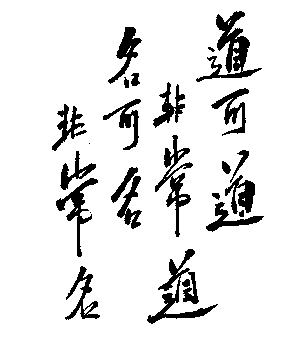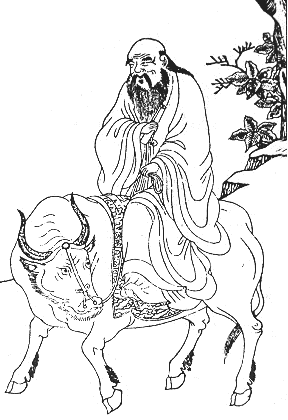Literally, "way" or "path."
As I understand it, "way" is probably the better choice because it contains in English the concept of "method" as well as that of "path" and both of them are also carried within the Chinese word. But Lao Zi's talking about more than just paths or ways; he is talking, mostly, about the Way.

The way that can be trod/followed/taken/shown*
is not the eternal Way.
The name that can be named/given/spoken*
is not the eternal Name. [1]
[ * choose one or substitute your own]
These are the first two lines of the Dao De Jing. A little later:
How vast it is!
As if the ten thousand things* poured forth from its depths.Its work is in blunting the pointed
Simplifying the tangled,
Dimming the bright,
And unifying everything.How deep it is!
Doubt it at your peril.I do not know whose child it is.
It has been as it is since before the emergence of God. [4]
[ * "the ten thousand things" = everything in the universe]
And later still:
Something there was, formed out of chaos,
Complete,
Born before the heavens and the Earth.
Quiet and still.
Pure and deep.
Standing alone and forever constant.
Pervading every place and every thing.
Mothering all beneath heaven.
I call it the Way.
And were I to give it a name it would be Magnificence! [25]
So. What can I say the Dao is?
I don't have a clue.
I just know that it is the Source of all, that it nourishes and sustains everything, that it is eternal, and that, for me, knowledge of the Dao has been an enormous comfort.
Literally "virtue" or "power."
But there are serious drawbacks to both of these English words.
-
With "power" there is the near certainty that the idea of "force" will intrude and force is not at all what de is about. De is about empowerment.
Listen to Lao Zi:
The wise advise leaders to shun force.
Force inevitably recoils against its users. [30]And:
A skillful leader does not use force.
A skillful fighter does not feel anger. [68] -
The problem with "virtue" is that, in English, the idea of morality is much too closely attached. De, instead, is about what we mean when we say "by 'virtue' of...." Morality has absolutely nothing to do with de. In fact, Lao Zi has nothing kind at all to say about that sort of "virtue" (which, with his tongue firmly embedded in cheek, he calls "goodness"):
The great Way is forgotten:
Goodness and justice emerge.
As shrewdness and learning follow:
Soon comes great hypocrisy.
Next families quarrel:
Piety and devotion are on their way.
The nation is in turmoil:
Patriots appear. [18]Or, again:
Banish the holy, slaughter the clever:
All will benefit a hundred-fold!
Renounce goodness: compassion can return.
Scorn gain: thieves will repent.Talent, goodness and profit are false values.
What is needed in their place are
Simplicity, integrity
And the knowledge of enough. [19]
As I understand it, de is the power of something (anything) to be what(ever) it is and to do what(ever) it does. For example, the de of a bowl lets it hold your soup without scalding yourself and staining your clothes. It arises from the bowl's emptiness.
Or, alternately, de can be seen as the virtue of something which makes it uniquely what(ever) it is and by virtue of which it does what(ever) it does. Thus, the de of an uncarved block of wood is its inherent ability to be shaped or formed into anything (such as, perhaps, into that soup bowl).
When Lao Zi speaks of de I often hear Darwin.
The Way gives them life, de nurtures them:
Shaping them according to their make up,
Perfecting them according to their surroundings.
So, the ten thousand things revere the Way and honor de.No edict requires reverence of the Way.
Nothing mandates honoring de.
It simply has always been so.
But whether or not the Way is revered
And whether or not de is honored,
The Way will give them life
And de will nurture them,
Make them grow, foster them,
Protect them and provide for them. [51]
And in this, as with so much else, Lao Zi has some surprises for us. Listen as he reminds us of the power (and virtue) of "nothing:"
Thirty spokes unite at the single hub;
It is the empty space which makes the wheel useful.
Mold clay to form a bowl;
It is the empty space which makes the bowl useful.
Cut out windows and doors;
It is the empty space which makes the room useful.Notice:
What is can be shaped to your advantage;
What is not is what is useful. [11]
And I said "reminds us" because this wisdom is not just the legacy of some ancient Chinese guy. After all, why do you think a room is called a room?
All of which rather conveniently brings us to...





